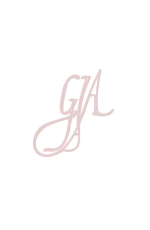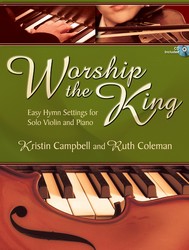- |
User Links
O richly, Father, have I been
Representative Text
O, richly, Father, have I been
Blest evermore by Thee!
And morning, noon, and night Thou hast
Preserved me tenderly.
And yet the love which Thou shouldst claim
To idols I have given;
Too oft have bound to earth the hopes
That know no home but heaven.
Unworthy to be called Thy son,
I come with shame to Thee,
Father!—O, more than Father, Thou
Hast always been to me!
Help me to break the heavy chains
The world has round me thrown,
And know the glorious liberty
Of an obedient son.
That I may henceforth heed whate’er
Thy voice within me saith,
Fix deeply in my heart of hearts
A principle of faith,—
Faith that, like armor to my soul,
Shall keep all evil out,
More mighty than an angel host,
Encamping round about.
Source: A Book of Hymns for Public and Private Devotion (15th ed.) #203
Author: William Henry Furness
 Furness, William Henry, D.D., born in Boston, 1802, and graduated at Harvard in Arts and Theology, 1820. From 1825 he has been an Unitarian Pastor in Philadelphia. He is an accomplished scholar, and has been an active worker in reforms of various kinds. His publications are numerous and
include a Manual of Domestic Worship, 1840, and a translation of Schiller's Song of the Bell.
His hymns are somewhat numerous, and several of them have great merit. The best and most widely used are:—
1. Father in heaven, to Thee my heart. Resignation. Appeared in The Christian Disciple, 1822. It was repeated in this form in some of the older collections, and a few modern hymnals, including the Boston Unitarian Hymns [& Tune] Book, 1868.… Go to person page >
Furness, William Henry, D.D., born in Boston, 1802, and graduated at Harvard in Arts and Theology, 1820. From 1825 he has been an Unitarian Pastor in Philadelphia. He is an accomplished scholar, and has been an active worker in reforms of various kinds. His publications are numerous and
include a Manual of Domestic Worship, 1840, and a translation of Schiller's Song of the Bell.
His hymns are somewhat numerous, and several of them have great merit. The best and most widely used are:—
1. Father in heaven, to Thee my heart. Resignation. Appeared in The Christian Disciple, 1822. It was repeated in this form in some of the older collections, and a few modern hymnals, including the Boston Unitarian Hymns [& Tune] Book, 1868.… Go to person page >Text Information
| First Line: | O richly, Father, have I been |
| Author: | William Henry Furness |
| Language: | English |
| Copyright: | Public Domain |
Tune
LAMBETH (Schulthes)Credited to Wilhelm Schulthes, 1871, in The Hymnal (1916). Reviews of his works in The Musical Times in 1871 include an "Ave Maria" for organ/piano and "O Salutaris" for soprano and choir. These pieces appear to be exceptionally rare and are not readily available for study. —Chris Fenner
AZMON
Lowell Mason (PHH 96) adapted AZMON from a melody composed by Carl G. Gläser in 1828. Mason published a duple-meter version in his Modern Psalmist (1839) but changed it to triple meter in his later publications. Mason used (often obscure) biblical names for his tune titles; Azmon, a city south of C…


 My Starred Hymns
My Starred Hymns







